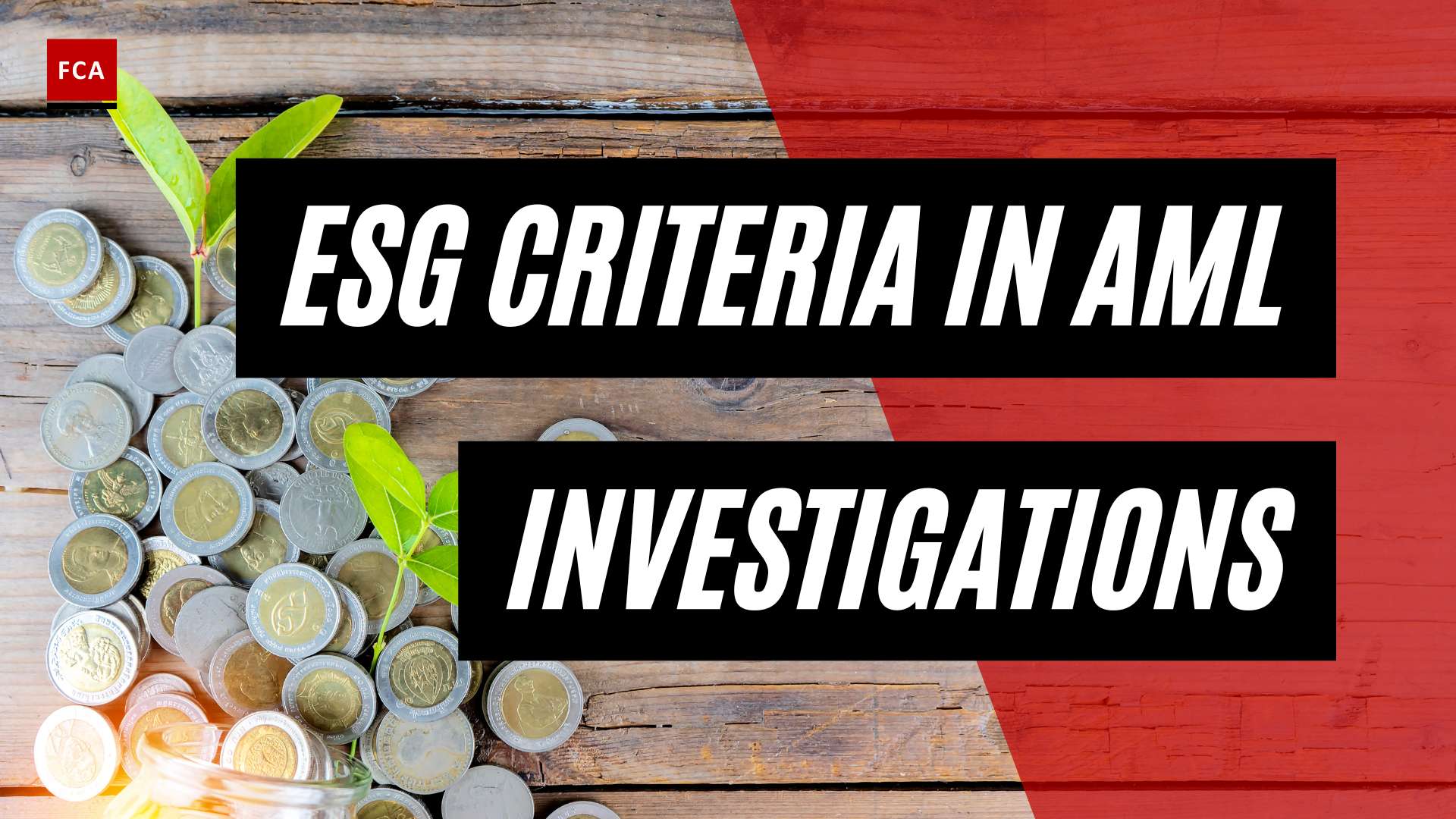AML Regulations for Professional Services
In the realm of professional services, adherence to Anti-Money Laundering (AML) regulations is paramount. These regulations are crucial for preventing money laundering and illegal activities within the industry. Professional service providers, including legal firms and other entities, are subject to strict compliance guidelines to ensure the integrity of their operations and safeguard against financial crimes.
Importance of AML Compliance
The importance of AML compliance for professional services cannot be overstated. The professional services industry is twice as likely to fall victim to money laundering compared to other sectors, according to the Financial Action Task Force (FATF). In fact, over 40% of large money laundering cases involve professional services firms, underscoring the significance of AML compliance within this sector (NorthRow).
To combat money laundering effectively, professional service providers must establish robust AML compliance programs. Compliance with AML regulations helps protect firms from reputational damage, financial penalties, and legal consequences. By implementing effective AML measures, professional service providers demonstrate their commitment to ethical business practices and contribute to the global fight against financial crimes.
Challenges Faced by Professional Service Providers
Professional service providers encounter unique challenges when striving for AML compliance. Their client portfolios often consist of high-net-worth individuals, global business entities, and politically exposed persons (PEPs). The complexity of these clients’ profiles poses challenges in conducting thorough due diligence and identifying potential risks associated with money laundering activities (NorthRow).
Moreover, the rapid advancement of digital technologies has increased the risk of money laundering through online channels. This digital transformation necessitates that professional service providers enhance their AML compliance programs to prevent financial crimes in the digital space (NorthRow).
Smaller professional service firms often face additional challenges in meeting AML compliance requirements. The evolving and complex nature of AML regulations necessitate regular updates to policies, procedures, and employee training. However, smaller firms may have limited resources, making it more difficult to keep up with the compliance demands (Challenges implementing anti-money laundering).
Another significant challenge in AML compliance for professional service providers is the identification of beneficial owners in client transactions. Compliance with AML regulations requires firms to ascertain the true individuals who ultimately own or control the client entities. However, issues such as complex ownership structures, client confidentiality concerns, and difficulties in verifying information provided by clients can complicate this process (Challenges implementing anti-money laundering).
To navigate these challenges and ensure effective AML compliance, professional service providers must stay informed about the evolving regulatory landscape, invest in robust compliance programs, and prioritize ongoing training and education for employees. By doing so, they can protect their businesses, maintain regulatory compliance, and contribute to the global fight against money laundering.
Key AML Requirements for Professional Services
Complying with Anti-Money Laundering (AML) regulations is of utmost importance for professional service providers. These regulations aim to prevent money laundering and the financing of illicit activities. In order to meet AML requirements, professional service providers must adhere to key practices such as Customer Due Diligence (CDD), Enhanced Due Diligence (EDD), and utilize Know Your Customer (KYC) solutions and AML screening services.
Customer Due Diligence (CDD)
Customer Due Diligence is a crucial component of AML compliance in professional services. CDD procedures involve assessing the risk profile of customers during the account opening process. This includes conducting sanction list screenings, Politically Exposed Persons (PEP) checks, and adverse media screenings to identify high-risk customers. By employing CDD measures, professional service providers can better understand their clients and identify potential risks associated with money laundering or other financial crimes.
Enhanced Due Diligence (EDD)
In addition to CDD, professional service providers may need to apply Enhanced Due Diligence measures for higher-risk customers. EDD involves conducting a more thorough investigation of the customer’s background, sources of funds, and business relationships. By implementing EDD processes, firms can mitigate potential risks associated with clients who may pose a higher risk of involvement in money laundering activities. Regular monitoring of financial transactions is also essential to fulfill AML obligations and detect any suspicious activities (Sanction Scanner).
KYC Solutions and AML Screening Services
Professional service providers, including accounting firms, law firms, and other entities, must adhere to KYC guidelines and utilize AML screening services to comply with AML regulations. KYC solutions and AML screening services assist in accurately establishing risk-based client account profiles and enable organizations to meet regulatory requirements effectively, especially in the context of increasing digitalization in financial services.
By implementing KYC guidelines, professional service providers can verify the identity of their clients, assess their risk profile, and ensure compliance with AML regulations. AML screening services, such as Sanction Scanner, aid in conducting thorough screenings of clients against global sanction lists, PEP databases, and adverse media sources. These services provide an added layer of security and help professional service providers meet their AML obligations by detecting and preventing potential money laundering activities.
In summary, professional service providers must prioritize AML compliance by implementing Customer Due Diligence (CDD) procedures, conducting Enhanced Due Diligence (EDD) for higher-risk customers, and utilizing KYC solutions and AML screening services. By adhering to these key AML requirements, professional service providers can mitigate the risks associated with money laundering and contribute to a safer and more secure financial environment.
Evolving Regulatory Landscape for Professional Services
The regulatory landscape for professional services in relation to Anti-Money Laundering (AML) has been undergoing significant changes. As the importance of combatting money laundering and terrorist financing continues to grow, regulators are expanding AML regulations to encompass a wider range of industries, including professional services. This expansion brings about new challenges for firms operating in these sectors.
Expansion of AML Regulations
The Financial Action Task Force (FATF) has recommended the application of AML regulations to a broader range of professional services beyond traditional financial institutions. This expansion aims to ensure that industries such as legal services play a more significant role in preventing money laundering and other illicit activities. The broader application of AML regulations has required professional service providers to adapt their compliance programs to meet the evolving regulatory landscape.
Compliance Challenges for Smaller Firms
Professional service providers, particularly smaller firms, face challenges in keeping pace with the evolving and increasingly complex AML regulations. The dynamic nature of these regulations necessitates regular updates to policies, procedures, and employee training to ensure compliance. However, smaller firms often have limited resources and expertise, making it more difficult to meet the rigorous requirements. The demands of compliance can pose a significant burden for these firms (Challenges implementing anti-money laundering).
Identifying Beneficial Owners
One of the key challenges for professional service providers is the identification of beneficial owners in client transactions. AML regulations require firms to determine the individuals who ultimately own or control the entities they work with. However, complex ownership structures, confidentiality concerns, and difficulties in verifying client-provided information can hinder the effective identification of beneficial owners. This challenge makes it more challenging for firms to conduct thorough due diligence on clients and prevent potential money laundering activities.
As the regulatory landscape continues to evolve, professional service providers must stay updated on the latest AML requirements and adapt their compliance programs accordingly. Failure to comply with AML regulations can result in severe consequences, such as regulatory scrutiny, fines, and reputational damage. It is crucial for firms to prioritize AML compliance and allocate resources to ensure effective implementation of AML measures. By doing so, professional service providers can play their part in safeguarding the integrity of the financial system and protecting against money laundering and other illicit activities.
Enforcement and Penalties for AML Violations
To ensure the effectiveness of anti-money laundering (AML) regulations in professional services, regulatory bodies closely scrutinize the compliance efforts of service providers. Failure to meet AML requirements can result in severe consequences, including fines, penalties, and reputational damage. In this section, we will explore the regulatory scrutiny faced by professional service providers, the fines and penalties for non-compliance, and highlight notable AML enforcement cases.
Regulatory Scrutiny on Professional Service Providers
Professional service providers, including legal firms, accounting firms, and consulting agencies, are under increasing regulatory scrutiny when it comes to AML compliance. Regulatory bodies expect these providers to implement robust AML policies and procedures to detect and prevent money laundering and other illicit activities.
Regulators often conduct audits and assessments to evaluate the effectiveness of AML controls. They review the implementation of customer due diligence (CDD) measures, transaction monitoring systems, and reporting mechanisms. By conducting these examinations, regulators aim to ensure that professional service providers are effectively identifying and mitigating AML risks.
Fines and Penalties for Non-Compliance
Non-compliance with AML regulations can lead to significant financial and legal consequences. The fines and penalties imposed for AML violations vary depending on the jurisdiction and the severity of the offense. In the United States, for example, violations of the Bank Secrecy Act can result in fines of up to $500,000 and imprisonment for up to 10 years (Unit21).
Regulators have the authority to impose monetary penalties based on the severity of the AML violations. These penalties can range from substantial fines to revoking licenses or authorizations to operate. The financial impact of these penalties can be significant, and they can also lead to reputational damage, loss of clients, and a decline in business opportunities.
Notable AML Enforcement Cases
Several high-profile cases demonstrate the consequences of non-compliance with AML regulations. These cases serve as a reminder of the importance of robust AML measures.
-
Deutsche Bank: The bank was fined $130 million by the U.S. Securities and Exchange Commission (SEC) for violating the Foreign Corrupt Practices Act and a commodities fraud scheme. This case highlights the significance of implementing effective AML controls to prevent illicit activities (Unit21).
-
N26: N26, a mobile banking platform, was penalized $5 million for failing to file a high number of suspicious transaction reports. This case underscores the importance of promptly reporting suspicious activities to relevant authorities to combat money laundering (Unit21).
-
USAA Federal Savings Bank: The bank was fined $140 million by the Financial Crimes Enforcement Network (FinCEN) for willfully failing to implement and maintain an AML program that met the minimum requirements. This case highlights the importance of establishing a robust AML program to comply with regulatory expectations and mitigate risks (Unit21).
These notable enforcement cases demonstrate the consequences faced by professional service providers for non-compliance with AML regulations. It is crucial for organizations in the professional services industry to prioritize AML compliance to protect their reputation, maintain client trust, and avoid costly penalties.
As the regulatory landscape continues to evolve, professional service providers must stay updated on the latest AML requirements and continuously enhance their AML programs to meet regulatory expectations. By doing so, they can effectively combat money laundering and uphold the integrity of the financial system.
Expert Insights in AML Compliance
To navigate the complex landscape of Anti-Money Laundering (AML) compliance in professional services, it is essential to gain insights from industry experts. Professionals working in compliance, risk management, and anti-financial crime stress the importance of engagement and listening to effectively address AML challenges. Additionally, experts emphasize recognizing the potential for growth and development in the AML field.
Importance of Engagement and Listening
Angela Salter, an AML expert, highlights the significance of engagement and listening in the AML field. To effectively combat money laundering and terrorist financing, professionals must actively engage with stakeholders, including clients, regulators, and colleagues. By fostering open lines of communication and collaboration, professionals can stay informed about emerging risks, regulatory changes, and industry best practices.
Engagement goes beyond simply complying with regulations; it involves building relationships and trust with clients to better understand their needs and potential risks. By actively listening to clients’ concerns and monitoring their transactions, professionals can identify suspicious activities and take appropriate measures to mitigate the risks. Regular communication and feedback loops with clients and colleagues create a culture of compliance and foster a proactive approach to AML efforts.
Recognizing Potential in the AML Field
Hennie Verbeek-Kusters, an AML expert, emphasizes the importance of recognizing the potential for growth and development in the AML field. As AML regulations continue to evolve and become more stringent, there is an increasing demand for professionals with expertise in AML compliance in various industries, including legal and professional services.
Professionals working in compliance, risk management, and anti-financial crime should recognize the opportunities for career advancement and specialization in the AML field. By staying updated on regulatory developments, pursuing relevant certifications, and expanding their knowledge through continuous learning, professionals can position themselves as valuable assets to their organizations and clients. Exploring specialized training, such as AML training for legal professionals, can further enhance their expertise in the legal and professional services sector.
By engaging with stakeholders and actively listening to clients, professionals can strengthen their AML compliance efforts. Recognizing the potential for growth in the AML field enables professionals to continuously develop their skills and contribute effectively to combating money laundering and terrorist financing.
Enforcement and Penalties for AML Violations
Professional service providers operating in the legal sector are subject to strict Anti-Money Laundering (AML) regulations. Failure to comply with these regulations can result in severe consequences for both the firm and individuals involved. In this section, we will explore the enforcement actions and penalties that professional service providers may face for AML violations.
Regulatory Scrutiny on Professional Service Providers
Regulators have intensified their scrutiny of professional service providers, including law firms and other entities operating in the legal sector. The Financial Action Task Force (FATF) has recommended that AML regulations should apply to a broad range of professional services beyond traditional financial institutions, leading to increased regulatory oversight (Challenges implementing anti-money laundering). Regulators are placing greater emphasis on ensuring that professional service providers have robust AML procedures and controls in place to detect and prevent money laundering activities.
Fines and Penalties for Non-Compliance
Non-compliance with AML regulations can result in significant financial penalties for professional service providers. Regulatory bodies have the authority to impose fines that can range from thousands to millions of dollars, depending on the severity of the violation and the jurisdiction in which the firm operates. These fines are intended to act as a deterrent and encourage firms to prioritize AML compliance.
In addition to monetary penalties, professional service providers may also face other sanctions. Regulatory bodies may impose restrictions on the firm’s operations, suspend or revoke licenses, or even bar individuals from working in the industry. These sanctions can have long-lasting and detrimental effects on the reputation and viability of the firm.
Notable AML Enforcement Cases
There have been several notable cases where professional service providers have been penalized for AML violations. These cases serve as a reminder of the importance of complying with AML regulations and the potential consequences of non-compliance. While the specifics of each case may vary, they highlight the need for professional service providers to maintain effective AML programs and remain vigilant in identifying and reporting suspicious transactions.
It is paramount for professional service providers to stay up-to-date with the evolving AML regulations and ensure that their compliance programs are robust and comprehensive. By implementing effective AML controls, conducting regular internal audits, and providing ongoing training to employees, firms can mitigate the risk of AML violations and protect themselves from regulatory scrutiny.
In the next section, we will explore expert insights on AML compliance, including the importance of engagement, listening, and recognizing the potential benefits of AML in the professional services industry.









